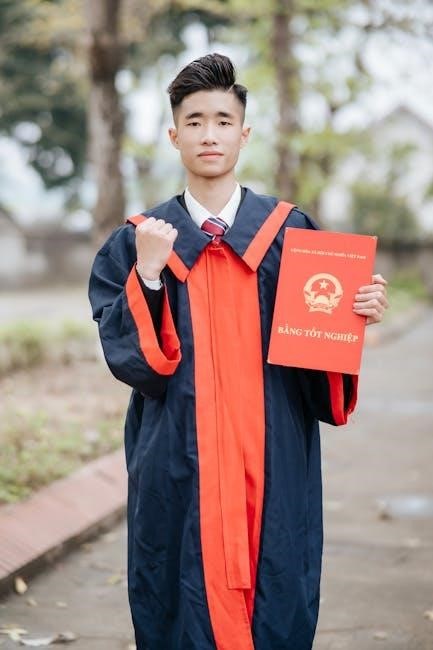Welcome to the guide on emailing college coaches. Mastering this skill is essential for student-athletes in the college recruiting process. Learn how to craft compelling messages‚ stand out in crowded inboxes‚ and build meaningful connections with coaches. Discover proven strategies and templates to effectively communicate your academic and athletic strengths‚ ensuring coaches take notice and consider you for their programs.
Why Emailing College Coaches is Crucial in the Recruiting Process
Emailing college coaches is a cornerstone of the recruiting process‚ enabling student-athletes to stand out and showcase their skills. With thousands of athletes vying for limited roster spots‚ a well-crafted email can make a significant difference. Coaches value personalized and professional communication‚ as it demonstrates a genuine interest in their program. Email allows athletes to introduce themselves‚ share academic and athletic achievements‚ and express their enthusiasm for the team. It also provides a platform to maintain consistent communication‚ keeping coaches informed about progress and updates. In a competitive landscape‚ a thoughtful email can distinguish an athlete from others and open doors to valuable opportunities. Mastering this skill is essential for any student-athlete aiming to secure a spot on a college team.

Key Elements of a Successful Email to College Coaches

A successful email to college coaches requires a clear subject line‚ personalized content‚ and a strong call to action. Ensure it is concise‚ professional‚ and highlights your unique strengths and interests.
Personalization and Standing Out in a Crowded Inbox
Personalization is key to making your email stand out. Coaches receive countless messages‚ so tailoring yours to their specific program is crucial. Start by addressing the coach by name and mentioning something unique about their team or institution. Highlight your genuine interest in their program and how you align with their values. Avoid generic phrases and ensure your email reflects your personality and goals. Use specific examples of your achievements and explain why you’d be a great fit. A standout subject line that includes your name‚ grad year‚ and position can also grab attention. Remember‚ the goal is to make the coach feel your email was written just for them‚ showcasing your enthusiasm and readiness to contribute to their team.

A well-crafted email to college coaches requires three critical elements: a compelling subject line‚ a concise introduction‚ and a clear call to action. The subject line should grab attention by including your name‚ grad year‚ position‚ and purpose‚ e.g.‚ “John Doe ⎻ 2024 Midfielder ⎯ Interested in Soccer Program.” The introduction should briefly present your background‚ including your high school‚ club team‚ and key achievements‚ while expressing genuine interest in the program. Finally‚ the call to action should politely request a response‚ feedback‚ or an opportunity to discuss your fit for the team. These components ensure your email is professional‚ informative‚ and impactful‚ making it more likely to engage the coach and prompt a response.

Sample Email Templates for Different Scenarios
Explore tailored email templates for various recruiting scenarios‚ such as introductory messages‚ tournament notifications‚ progress updates‚ and follow-ups. These templates help athletes communicate effectively and professionally with college coaches‚ ensuring clarity and purpose in every interaction.
Introductory Email: Making a Strong First Impression
An introductory email to a college coach is your first opportunity to showcase your interest and qualifications. It should be concise‚ professional‚ and personalized. Start with a clear subject line that includes your name‚ grad year‚ and position to grab attention. In the body‚ introduce yourself‚ mention how you discovered the program‚ and highlight your academic and athletic achievements. Be specific about why the college aligns with your goals‚ demonstrating genuine interest. Conclude with a polite call to action‚ such as requesting feedback or expressing eagerness to discuss further opportunities. Avoid generic templates and ensure your voice shines through. This email sets the tone for future communication‚ so craft it carefully to leave a lasting impression. Proper formatting and proofreading are essential to maintain professionalism.
Emailing Coaches Before a Tournament or Showcase
Emailing coaches before a tournament or showcase is a strategic way to ensure they are aware of your participation and have the opportunity to evaluate you in person. Start with a clear subject line that includes your name‚ grad year‚ position‚ and the event name. In the body‚ briefly introduce yourself‚ mention your team‚ and provide the tournament schedule‚ including game times and locations. Highlight any recent achievements or updates to pique their interest. Attach your highlight reel link and include your club coach’s contact information for additional insights. Express enthusiasm for the opportunity to showcase your skills and politely ask for feedback; Keep the tone professional and concise‚ ensuring all necessary details are easy to find. This email serves as both an invitation and a way to stand out before the event begins.
Updating Coaches on Academic and Athletic Progress
Regularly updating college coaches on your academic and athletic progress is crucial for maintaining their interest and showcasing your growth. Start with a clear subject line that includes your name‚ grad year‚ position‚ and the purpose of the email. In the body‚ provide specific updates‚ such as your current GPA‚ recent academic achievements‚ or new test scores. Highlight any athletic accomplishments‚ like improved stats‚ awards‚ or team successes. Include a link to your updated highlight reel or SportsRecruits profile for easy access to your latest information. Express gratitude for their time and ask for feedback on your progress. This demonstrates your commitment to improvement and keeps you on their radar. Always keep the tone professional and concise‚ ensuring your updates are meaningful and relevant to their program.
Following Up After Initial Contact

Following up after initial contact with college coaches is essential to keep the conversation active and demonstrate your continued interest in their program. If it’s been a few weeks since your last email‚ consider sending a follow-up to provide updates on your academic or athletic progress. Mention any new achievements‚ such as improved grades‚ higher test scores‚ or recent sports accomplishments. Include a link to your updated highlight reel or profile. Keep the tone polite and professional‚ expressing gratitude for their time and reiterating your interest in the program. Avoid being overly pushy‚ but show enthusiasm and commitment to taking the next steps. Personalization is key‚ ensuring the email feels genuine and tailored to the coach and their team. This approach helps maintain a positive impression and keeps you on their radar. Always proofread before sending to ensure clarity and professionalism. If you haven’t received a response after several follow-ups‚ consider reaching out during less busy periods or seeking alternative methods of communication‚ such as a phone call‚ if appropriate. Consistency and patience are vital in building a strong connection with college coaches. By staying proactive and engaged‚ you can keep the lines of communication open and increase your chances of being noticed. Following up is not just about persistence; it’s about showing coaches that you’re serious‚ organized‚ and eager to contribute to their team. Regular updates also provide coaches with the most current information about your abilities and qualifications‚ helping them make informed decisions about your potential fit for their program. Whether it’s an update on your academic standing‚ athletic performance‚ or personal achievements‚ each follow-up email is an opportunity to strengthen your case and build a lasting impression. Always remember to stay positive‚ respectful‚ and professional in your communication‚ as these traits are highly valued by college coaches. By following these guidelines‚ you can effectively maintain communication and keep yourself in contention for a spot on their team. If you’re unsure about the frequency or content of your follow-ups‚ consider consulting with your high school coach or a recruiting expert for guidance. They can provide personalized advice and help you navigate the process with confidence. Ultimately‚ consistent and thoughtful follow-ups are a critical component of a successful recruiting strategy‚ demonstrating your dedication and helping you stand out in a competitive field. Keep track of your interactions and adjust your approach as needed to ensure you’re making the best impression possible. The key is to stay engaged without being overwhelming‚ showing coaches that you’re a responsible and motivated student-athlete who is ready to take the next step in your academic and athletic career. By doing so‚ you’ll not only maintain their interest but also increase your chances of securing a spot on their team. Remember‚ every interaction is an opportunity to showcase your character‚ skills‚ and commitment‚ so make the most of each follow-up to build a strong and lasting relationship with college coaches.

Best Practices for Communicating with College Coaches
Be concise‚ clear‚ and professional in all communications. Personalize emails‚ proofread thoroughly‚ and use proper formatting. Maintain a respectful tone and avoid overly casual language. Stand out by being genuine and organized‚ ensuring coaches can easily assess your qualifications and interest.
When to Send Follow-Up Emails and How to Keep the Conversation Going

Follow-up emails are crucial for maintaining communication with college coaches. Send them after initial contact‚ tournaments‚ or when updating academic/athletic progress. Timing matters: wait 7-10 days before events or 3 months after last contact. Keep conversations engaging by sharing new achievements‚ asking for feedback‚ or expressing continued interest. Personalize each email to show genuine enthusiasm for the program. Avoid generic messages; instead‚ highlight specific reasons for your interest. Coaches appreciate concise‚ well-organized updates. Use this opportunity to remind them of your strengths and dedication. Include links to updated highlight reels or transcripts for easy access. Always close with a polite thank you and a call to action‚ such as requesting feedback or scheduling a call. Consistent‚ thoughtful follow-ups demonstrate professionalism and commitment‚ keeping you on the coach’s radar;

Importance of Personalized and Genuine Communication
Personalized and genuine communication is key to making a lasting impression on college coaches. Coaches can easily spot generic‚ copied emails‚ which often go ignored. Tailor each message by mentioning specific aspects of the program‚ such as its academic strengths‚ team achievements‚ or unique opportunities. Share personal stories or reasons why the college aligns with your goals. Avoid overly formal language; instead‚ convey your authentic voice. This approach shows coaches you’ve done your homework and are genuinely interested in their program. Personalization also helps build trust and rapport‚ essential for establishing a meaningful connection. Remember‚ the goal is to stand out and create a dialogue‚ not just send an email. By being sincere and specific‚ you increase the likelihood of a positive response and a continued conversation.
Effective communication is the cornerstone of a successful college recruiting process. By crafting personalized‚ well-structured emails‚ student-athletes can make a lasting impression on college coaches. Consistency‚ sincerity‚ and attention to detail are vital in building meaningful connections. Use the strategies outlined in this guide to stand out in a crowded inbox‚ showcase your strengths‚ and demonstrate your genuine interest in a program. Remember‚ communication is a two-way street—follow up‚ stay proactive‚ and maintain open lines of dialogue. With persistence and authenticity‚ you can maximize your chances of securing a spot on a college team. Ultimately‚ effective communication is not just about sending emails; it’s about telling your story and making it unforgettable.

Leave a Reply
You must be logged in to post a comment.